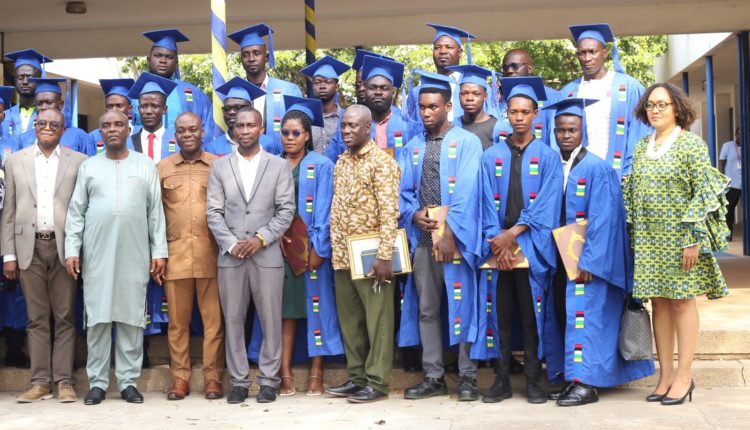The focus of management of higher institutions needs to shift from theoretical knowledge to skill-based education with a more practical and dynamic approach.
This approach which is geared towards bridging the gap between academia and industry will help ensure that graduating students will find their transition into industry roles smoother.
The Director of Tertiary Education at the Ministry of Education Dr Bless Dzakadzi gave this proposal at the maiden graduation ceremony for a professional certificate of competence for operators within the West and Central African sub-region at the Regional Maritime University on Thursday in Accra.
He stated that despite exponential changes in almost every field of education, the tertiary education curriculum is often rigid and hard to revise adding that “it is advisable that curriculum is revised regularly and developed in accordance with what industry needs”.
He noted that besides imparting the core or technical knowledge, academia should also try to focus on the softer and behavioral aspects.
“Hammering on sectors such as interpersonal skills, leadership capability, attitude, communication skills, team spirit and alike will play a critical role in determining the success of individuals once they join the industry. Well-timed and well-deliberated exposure to the industry will also provide a much-needed experience to the students,” he added.
He re-echoed that the economic transformation of this country depends to a large extent on graduates of Professional Universities, who have been equipped with high-level practical and career-focused skills for self-employability by being job creators rather than job seekers.
On his part, the Acting Vice Chancellor of the Regional Maritime University, Dr. Jethro W. Brooks JR stressed the need for standardized training and certification within the sub-regions.
“This gives a competitive advantage to certified heavy-duty operators to seek job opportunities across borders. We believe that a standardized training and certification program will enhance the quality of our workforce, improve safety standards, and promote cross-border mobility of skilled labour,” he stated.
He called on all industry players to collaborate with the institution to help train students and staff on employable skills.
“It is our hope that other industry players such as the Ghana Ports and Harbours Authority, the Gambia Ports Authority, the Liberia Ports Authority, the National Port Authority of Cameroon, the Sierra Leone Ports Authority, and the industry in general, will collaborate with the RMU for training such as this”.
The first batch of twenty-five (25) trainees completed their training in crane and forklift operations as part of the MoU signed between the Regional Maritime University (RMU) and the National Association for Heavy-duty Operators of Ghana (NAHEOG).




Comments are closed.